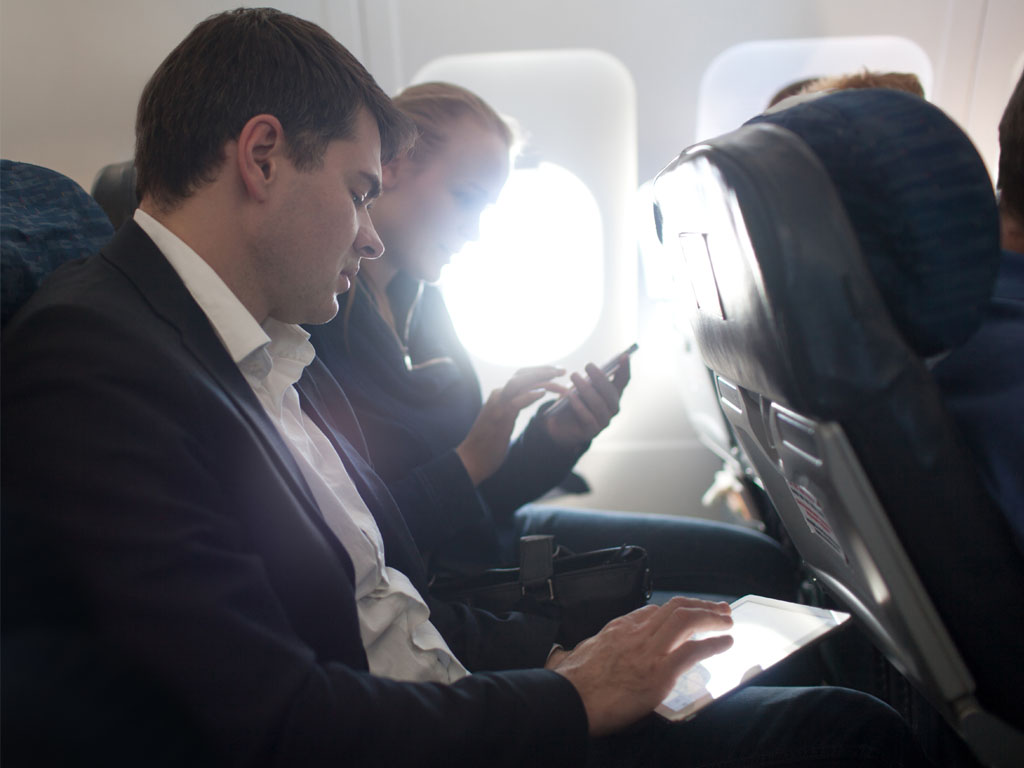We all know traveling can be tedious and time-consuming, no matter how delightful the passenger’s inflight experience. People get restless, especially on long hauls—which is one reason why airlines are focusing on giving passengers the opportunity to get more done in one place, physically and digitally.
Airlines may now offer passengers a digital hub while in flight, a multi-platform, omnichannel experience that isn't limited to providing extra layers of convenience for travelers. Rather, the hub may be designed to promote open-mindedness and a willingness to experiment with new digital experiences, ancillary offerings, and value-added services—all facilitated by IFEC systems—and may yield interesting outcomes, particularly with regard to increased passenger satisfaction, loyalty, and revenues.
That's why some innovative airlines may now see themselves as not only a mode of transport, but as a complete digital hub for delivering things like entertainment, destination services, and retail. It's a win-win proposition: by empowering passengers to manage more of their travel experience with less effort and fewer apps, airlines can expect to boost revenue. Here's how.

Aeromexico: Increasing Revenue with Retail
It's no secret that inflight retail is a major focus for airlines—but it seems that not everyone knows quite how to design the optimal experience.
It sure looks like Aeromexico has, though.
The flag carrier completely redesigned its websites and apps on the front end and fulfillment capabilities behind the scenes to offer personalized retail and end-to-end transportation recommendations.
Aeromexico's revamped mobile app now concentrates on up-selling ancillary retail products during post-purchase and day of travel, whether it's duty-free inflight merchandise or a taxi shortly after landing. Their app also guides travelers to the right baggage counter or security checkpoint using Google Maps integration on travelers' smartphones. Aeromexico’s goal is to increase both the passenger time in the app and number of things that people use the airline's app for, as well as improve higher-margin revenue via direct, in-app purchases.
As an extension of Aeromexico's new digital ecosystem is a multilingual Facebook Messenger chatbot, designed not just for customer service but as another channel for up-selling and cross-selling ancillary and retail products. Combined with artificial intelligence that analyzes each traveler's past purchase history and current preferences, Aeromexico's chatbot is just one example in the trend of airlines encouraging passengers to use their services for more than just making and managing flight bookings.
Some innovative airlines may now see themselves as not only a mode of transport, but as a complete digital hub for delivering things like entertainment, destination services, and retail.
Singapore Airlines: Making Flying Personal
Making more, and increasingly personalized, ancillary products and services available via websites, apps, or chatbots doesn't just impact the Airline’s revenue. By giving passengers more reasons to engage with airlines digitally, there can be a significant positive impact on loyalty.
Singapore Airlines, for instance, is making its IFEC system a personalized entertainment hub for its passengers. Known as myKrisWorld, the system allows passengers to log in at their seat and customize their inflight entertainment experience.
Once logged in, passengers are able to resume unfinished movies from previous flights, receive recommendations based on viewing history, and even unlock premium content with accumulated loyalty points. Loyalty members can also customize the look and feel of their IFEC interface and save their language/subtitle preferences for future flights.
With the right IFEC partner, these things aren't hard to do—and they have potentially big, positive business outcomes.
Eurowings and Delta: Going Beyond the Inflight Experience
Whether it's getting to the airport on time or arranging transportation upon arrival at the passenger’s destination, airlines are now making strides towards being an all-in-one digital service provider for passengers' ground transportation needs as well. For now, this is taking the form of coordinating with taxi and transportation apps and platforms to seamlessly enable booking arrangements from within an airline app itself.
Eurowings, for example, recently debuted in-app taxi-ordering capabilities in collaboration with popular European taxi app MyTaxi. The airline now allows passengers to book taxis to the airport quickly and easily from within the app itself. Consolidating travel-related services in one single application can help travelers have a simpler door-to-door journey, which in turn improves the overall passenger experience. Eurowings also receives a portion of the revenue generated for each taxi booking made from within its app.
Other airlines are striking similar deals in the area of accommodations. Delta SkyMiles members who book Airbnb accommodations through the Delta website can earn frequent flyer miles for their stay, even if they're not actually booking a flight. In doing so, Delta is taking an innovative approach to garnering loyalty from millennial passengers, who often prefer unique Airbnb experiences to traditional hotels or resorts.
Airlines are incorporating retail, entertainment, transportation, and accommodations into their digital experiences as they strive to become more holistic online hubs for customers, both inflight or on the ground. Innovative approaches taken by the likes of Aeromexico, Singapore Airlines, Eurowings, and Delta will undoubtedly serve to enhance the passenger experience, as well as provide a lift to customer loyalty and revenue-per-passenger.



